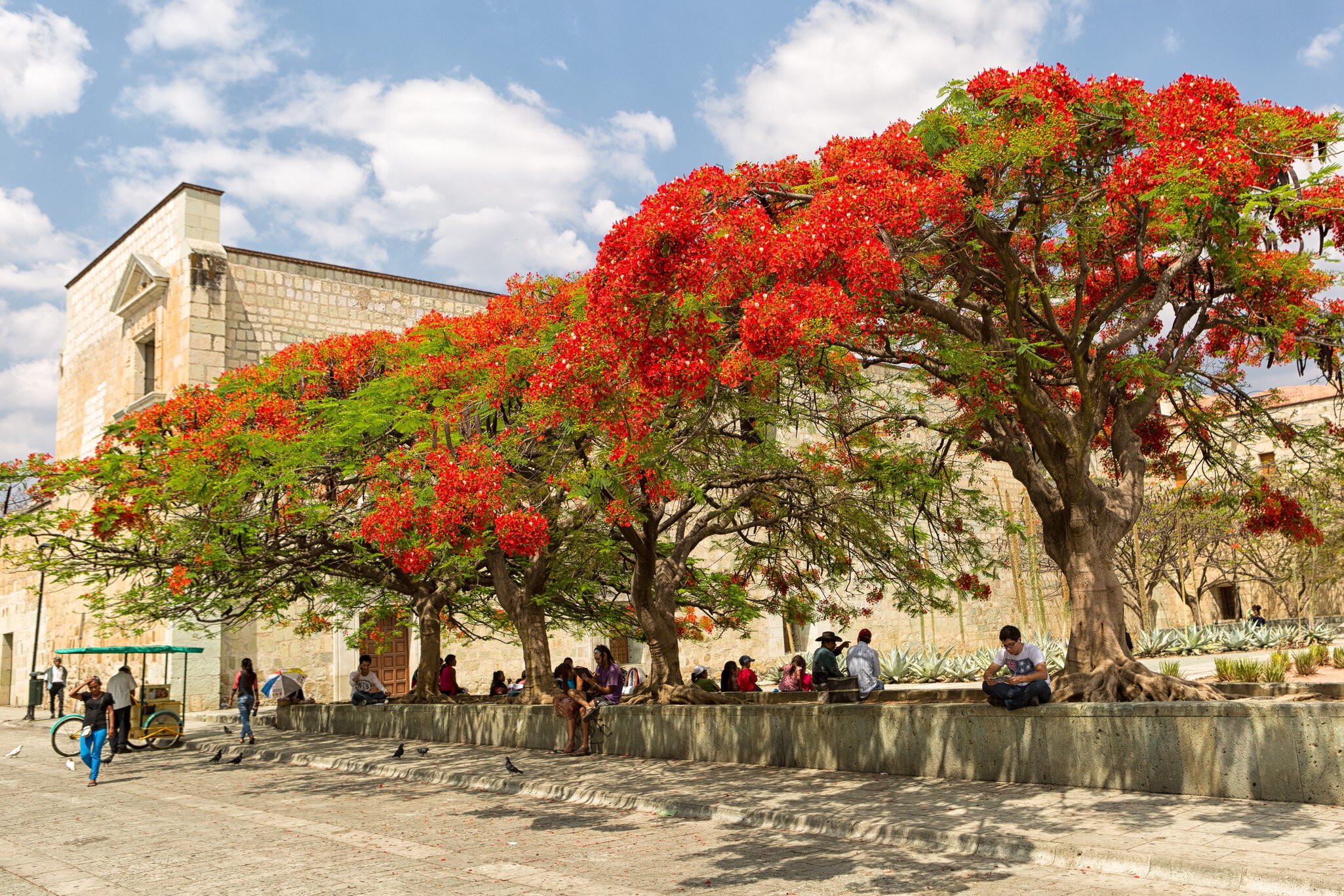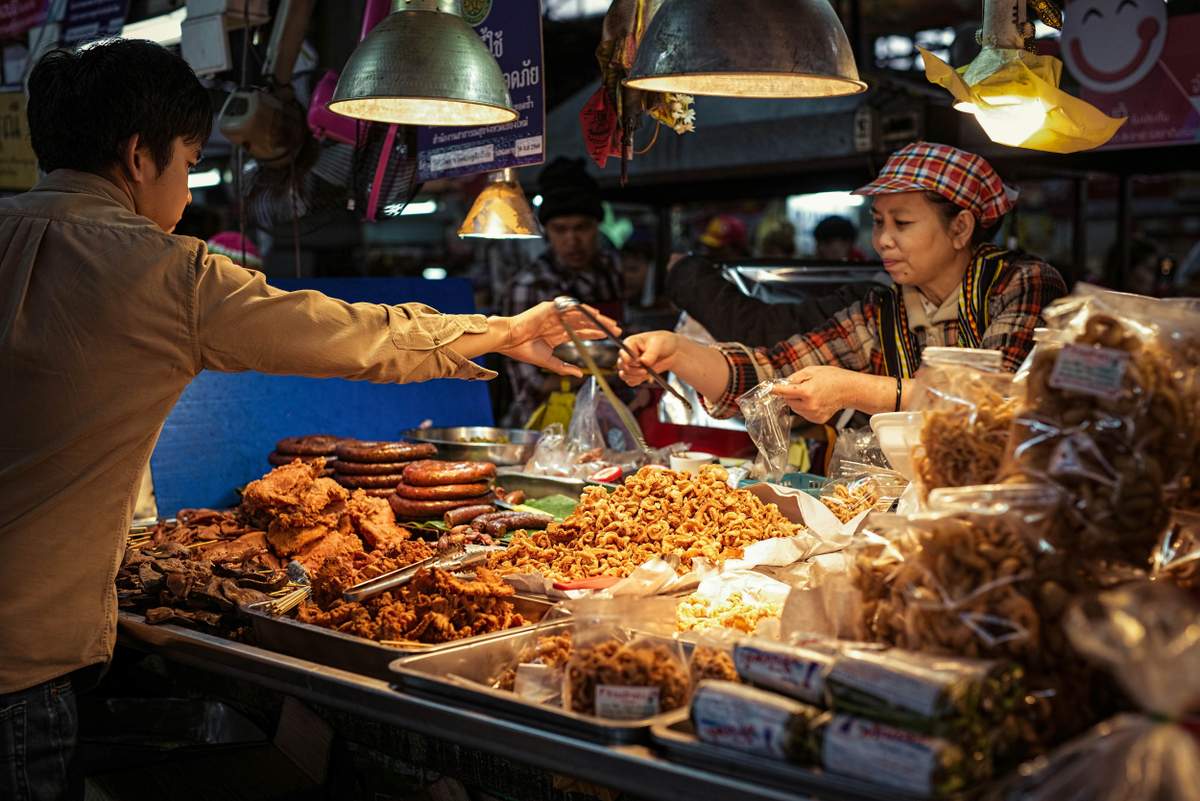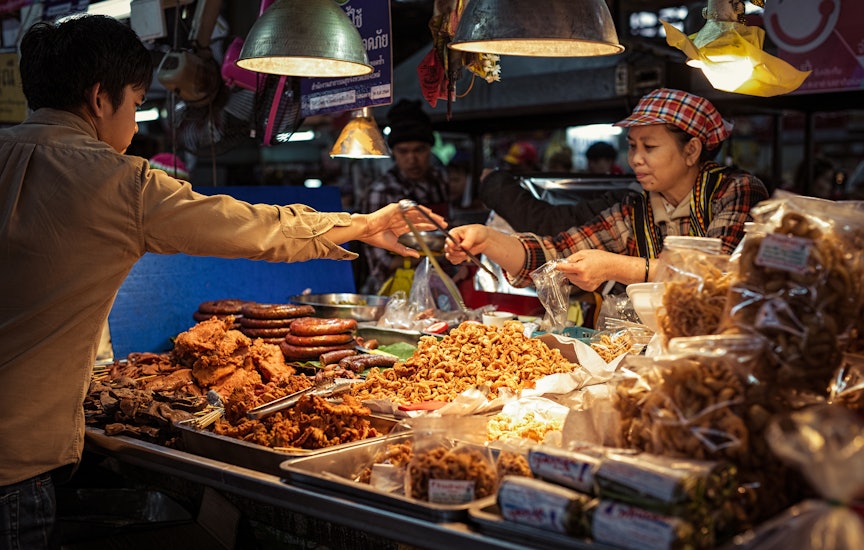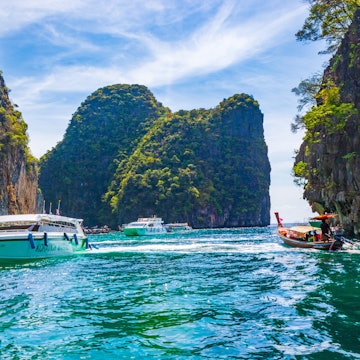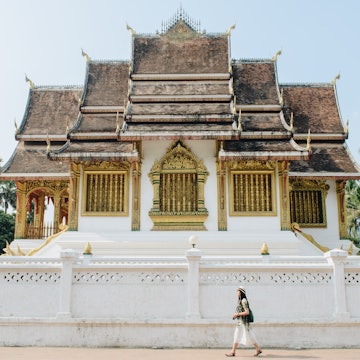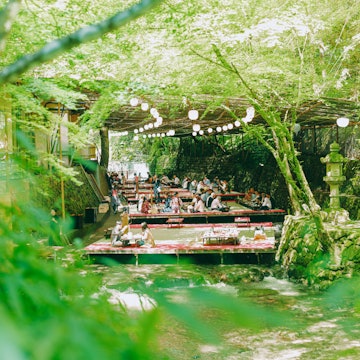
The best 12 free things to do in Chiang Mai


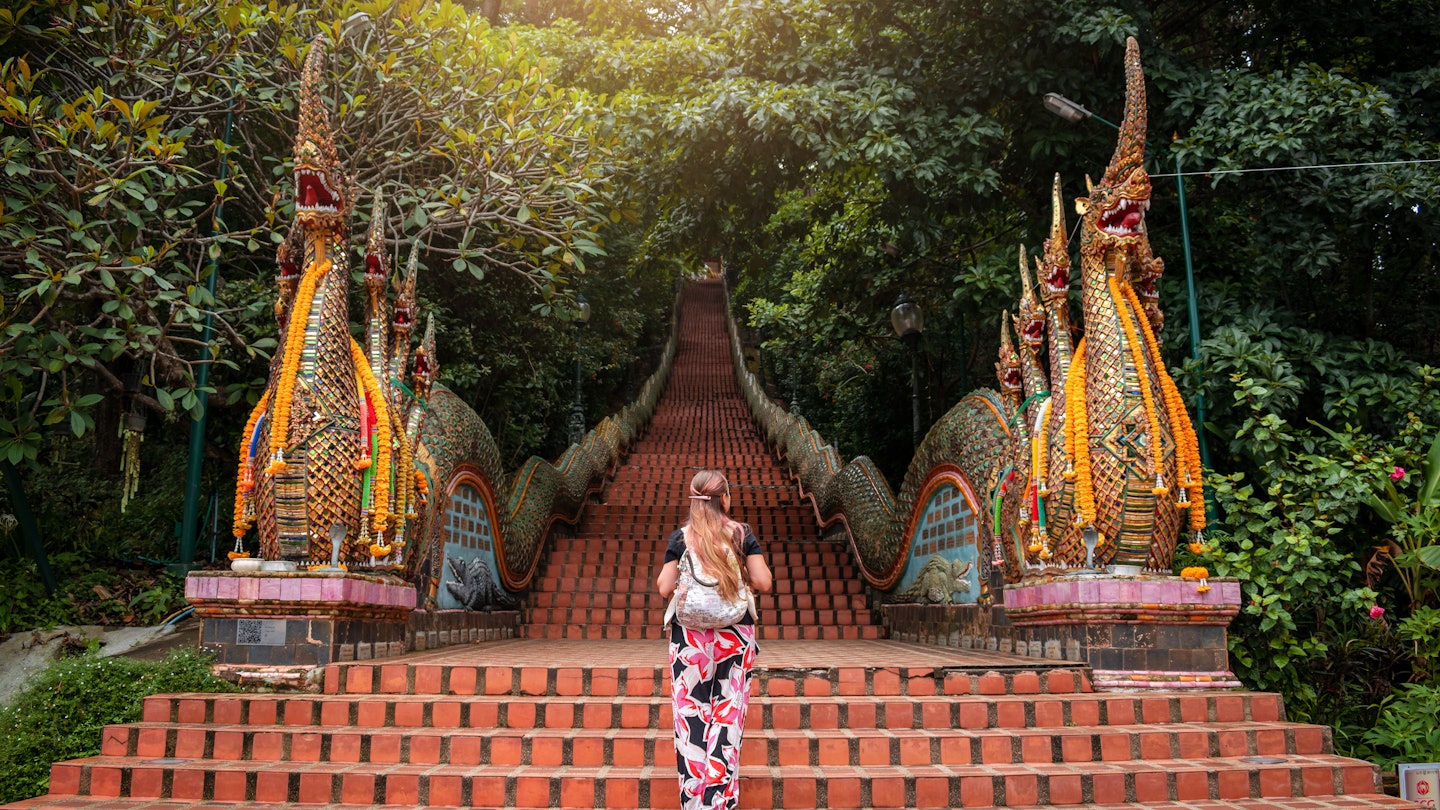
Visiting a temple like Doi Suthep is one of the top free things to do in Chiang Mai © Getty Images / iStockphoto
Many experiences in Chiang Mai are ideal for the budget traveler – grazing on street food, enjoying relaxing traditional Thai massages, sipping red iced tea, renting a scooter to buzz out to waterfalls and hot springs – but everyone knows that the best things in life are free. And Chiang Mai has experiences by the bucketload that cost absolutely nothing at all.
Start with the city’s myriad ancient wat (Buddhist monasteries), most of which can be visited any day of the week without paying an entry fee. Then there are Chiang Mai’s mesmerizing markets, where you can immerse yourself in local culture for nothing (if you can resist the urge to splash out on drool-inducing street food and incredibly artful handicrafts).
That’s just the beginning – cultural encounters are a recurring theme when exploring Chiang Mai for free. Here are the top things to do in the northern Thai capital without spending a baht.

1. Marvel at Chiang Mai’s best monasteries
More than 100 ancient monasteries dot the streets of Chiang Mai’s historic center, and most can be visited for free, though donations are appreciated (and Thai visitors usually make a contribution). Start with the big hitters – Wat Phan Tao is an astonishing fantasy of towering teak pillars that would not look out of place as a Game of Thrones location, while revered Wat Phra Singh is lavishly adorned inside and out, and Wat Srisuphan gleams with the work of local silversmiths.
The only monasteries where you’ll need to pay an entry fee are Wat Chedi Luang, with its towering ruined stupa supported by stucco elephants, mirror-mosaic adorned Wat Bupparam, Wat Suan Dok with its floor-to-ceiling Buddha image, and Wat Phra That Doi Suthep, the city’s most impressive shrine. And those entry fees are modest – typically less than 40B, around the price of a plate of fried rice.
Planning Tip: Don’t overlook the city’s outlying monasteries. Beyond the historic center, Wat Chet Yot is covered with stucco depictions of devas (angelic Buddhist spirits), while Wat Umong Maha Therachan sits over a maze of brick passageways, built in the 14th century to contain the wanderings of the “mad monk” Therachan.

2. Chat with a Buddhist monk
There’s nothing surprising about free conversation, but Chiang Mai’s organized Monk Chat sessions are both free and fascinatingly insightful. At monasteries such as Wat Suan Dok and Wat Srisuphan, chatty monks with good English language skills take a seat at designated tables at fixed times and wait for interested travelers to pull up a chair so they can share stories of their journey into the sangha (brotherhood) and the day-to-day experience of being a Buddhist monk. There’s also a monk chat session at Wat Chedi Luang, but you’ll have to pay the entry fee to join the sessions.
Planning Tip: Most monk chat sessions take place on weekdays, and some include follow-on meditation sessions. Monk chat at Wat Suan Dok takes place every weekday afternoon, and the monastery also offers popular meditation retreats.

3. Take a Walking Street wander
Chiang Mai’s Walking Street markets are a city institution – and a great free experience if you can resist the urge to buy as you browse. It’s going to be hard, as these brilliantly bustling weekend markets are packed with vendors selling amazingly inventive crafts and some of the city’s most delectable street food, with street performers on hand to entertain the throng. On Saturday, the action takes over Thanon Wualai, running southwest from Pratu Chiang Mai at the southern entrance to the old city; on Sunday, the fun moves to Thanon Ratchadamnoen.
Planning Tip: Chiang Mai’s local markets are every bit as fun as the boisterous bazaars laid on for tourists. Dive into the mercantile bustle of Talat Warorot and the adjacent Talat Ton Lam Yai flower market, and challenge yourself to identify the wonderful produce on sale in the Talat Muang Mai wholesale fruit market.
4. Explore the ruins of Chiang Mai’s first city
For all its historic grandeur, the city of Chiang Mai was actually the plan B location for the Lanna capital. The remains of the first royal city, Wiang Kum Kam, poke out from between the trees and houses in a sleepy suburb south of modern Chiang Mai. This collection of timeworn brick stupas and monasteries served as the Lanna capital for 10 years from 1286 – there are organized tours available for a fee, but you can wander on foot from temple to stupa for free.
Planning Tip: Start your explorations at Wat Chedi Luang, whose spire contains dozens of niches for Buddha statues, an architectural nod to India's famous Mahabodhi Temple.
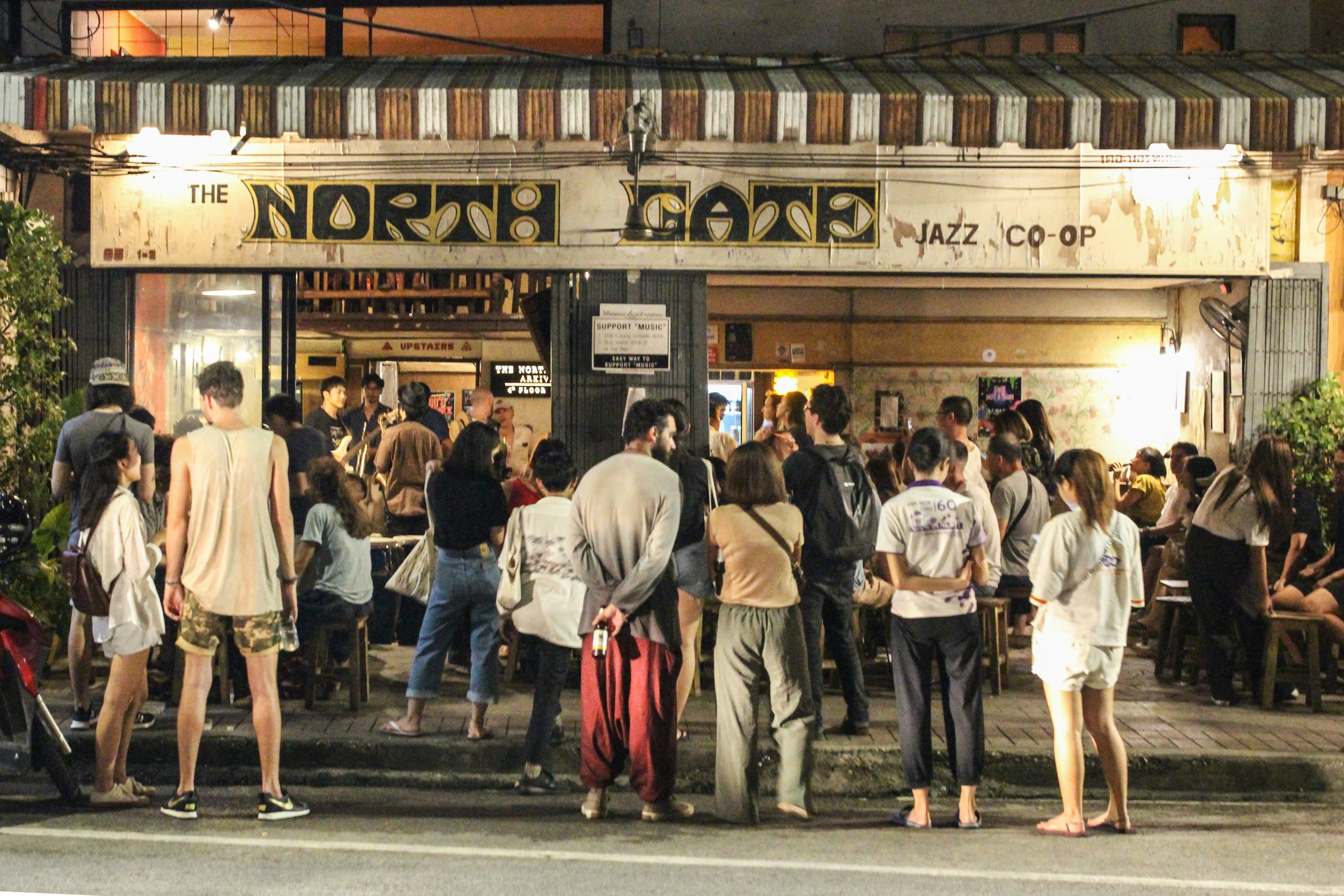
5. Listen to live music over a cold Chang beer
Chiang Mai has a great live music scene, and there’s rarely a cover charge, though you’ll need to order a drink to listen. Situated on the north side of the old city near the moat, North Gate Jazz Co-Op hosts an interesting assortment of musicians nightly, starting at around 8:30 p.m. This isn’t one of those purist jazz clubs; musicians cover everything from jazz and blues to funk and rock. Chances are you’ll be standing on the sidewalk to listen to the music as it gets busy!
Other top spots for free live music include the Riverside Restaurant (for talented covers bands), Boy Blues Bar (for blues, obviously), Sudsanan (for acoustic singer-songwriters), and Thapae East (for up-and-coming local talent).
6. Enjoy the view for free
Chiang Mai is ringed by towering, forest-swaddled mountains, but the historic center is surprisingly flat – which is partly why Lanna kings and queens chose this location as the setting for their royal capital. To appreciate the layout of this ancient city, it pays to get up above the streets to admire the views from up high.
Start by following the Naga stairway, climbing through the trees above Royal Park Rajapruek to Wat Phra That Doi Kham, where a terrace looks out over a sweep of Chiang Mai rooftops. While you enjoy the breezes, consider the sinister legends surrounding this mountainside. According to Lanna tradition, Doi Suthep was once home to a pair of murderous giants who waylaid travelers until the Buddha appeared and converted them to a life of virtue.

7. Drop by for Yoga in the Park
Most yoga classes in Chiang Mai charge a fee, but if you’re on a strict budget, you can fine-tune your yoga practice for free. Check out the Yoga in the Park Facebook Group for the next free yoga class in the calm, green Suan Buak Hat Park. Volunteer, traveling and Chiang Mai-based yoga teachers take guest spots to run the classes, and you can buy woven picnic mats locally that serve just fine as yoga mats.
8. Hike up to Wat Phra That Doi Suthep
There’s an entry fee to visit Chiang Mai’s most famous temple, but it’s less than you’d pay for a fruit shake, and the strenuous hike up to this memorable mountain monastery is one of Chiang Mai’s most enjoyable free experiences. Pick up the path behind the zoo, near Chiang Mai University, and hike up through the increasingly lush tropical forest through the grounds of Wat Pha Lat (wear appropriate clothing – no short shorts or bare shoulders).
There are good views en route before you punch out of the forest and arrive hot and sticky on the doorstep of Chiang Mai’s most impressive temple (pause to catch your breath and contemplate the journey at the towering, gilded chedi).
Planning Tip: If you don’t feel up to the hike, the next best way to reach Wat Phra That Doi Suthep is by renting a scooter or motorcycle. It’s an exhilarating ride along a snaking road that climbs the mountainside.
9. Learn how to meditate
Most Thais grow up learning vipassana meditation, and Chiang Mai is a great place to investigate the practice. The Wat Phra That Doi Suthep Vipassana Meditation Center runs donation-funded retreats with accommodations on site. Still, you’ll need to follow strict rules of conduct, including rising at 5 a.m. every morning. There’s a similarly strict approach to meditation but simpler rules for enrollment at Wat Umong Suan Phutthatham.
Planning Tip: If you’re just looking for a meditation taster, various traveler-oriented holistic centers offer free meditation sessions alongside paid-for classes. Wat Srisuphan offers free meditation sessions after Monk Chat on Tuesday, Thursday, and Sunday, starting around 7 p.m.
10. Bathe in a waterfall
While some of the idyllic waterfalls cascading through the jungle near Chiang Mai have entry fees, there are several that are free to splash about in, including the conveniently located Huay Kaew Waterfall at the base of Doi Suthep. Further out is Nam Tok Bua Tong, more commonly known as the “Sticky Waterfall” because you can walk up the falls without slipping – but you’ll need your own vehicle (or a chartered rót daang van) to get here.
11. Eat at the Vegetarian Society
In Chiang Mai, you can find a filling meal for under 40B, particularly if you frequent street food markets such as Talat Pratu Chiang Mai and Talat Pratu Chang Pheuak, but the Chiang Mai Vegetarian Society raises the bar when it comes to rock bottom prices. Located on Thanon Mahidol, this volunteer-run Buddhist society serves purely vegan Thai fare in a canteen-like setting with dishes starting as low as 5B, and some dishes or drinks are completely free.

12. Marvel at Chiang Mai’s magical festivals
Almost all of Chiang Mai’s fabulous festivals – from wet’n’wild Songkran and sky lantern-filled Loi Krathong – are free to observe or even participate in, though you’ll have to balance that against increased prices for rooms and transport at festival time. As well as the big-name festivals, head to local monasteries during Buddhist celebrations such as Makha Bucha and Visakha Bucha – dance performances and Thai classical music by phiphat bands are very much part of the spectacle.
Planning Tip: Festival fans take note – free food is often generously dished out at temples during Chiang Mai’s festivals, but a donation is appropriate to help the food stands cover their costs.



